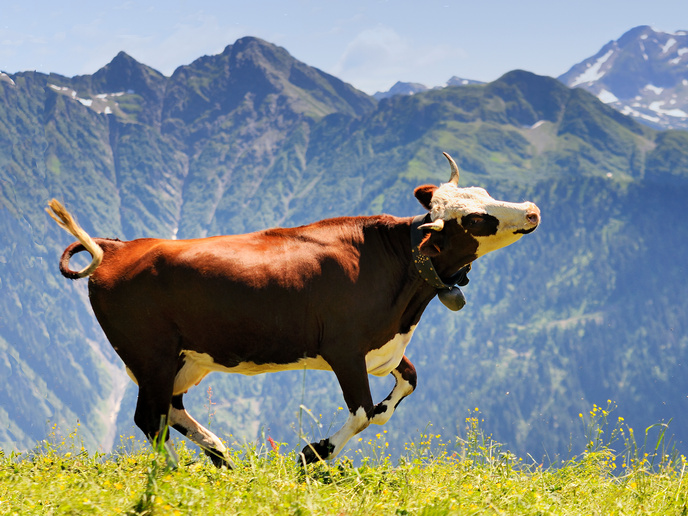Could we breed animals that don’t mind being eaten?
Over thousands of years, farmers have selectively bred animals for agriculture. This process of domestication has given rise to breeds that can tolerate conditions such as crowded cages and barns, allowing the rise of industrial farming. Consumers increasingly demand better welfare standards for farmed animals, but shifting to a less intense form of farming is not straightforward. “People assume that the moment you take a chicken out the cage, you get a happy chicken,” says Smulders, a reader in Evolutionary Neuroscience at Newcastle University. “But the reality is that these chickens have not been bred to actually deal with these large environments, and until we know how to best design the cage-free environment for optimal welfare, such environments can create a very stressful situation for them.” This highlights the huge impact that domestication has had on animals. “We can see this impact in the fact that domesticated animals are less fearful of humans and have a blunted stress response compared to their wild equivalents,” explains Smulders.
Stress-free by design
Smulders recently returned from a conference where one genetics company talked about the work they are doing on broiler chickens. “These are the chickens that end up in our supermarkets, they’re big chickens that have been bred to go from chick to two kilos in six weeks,” he adds. The problem is that broiler chickens’ legs can’t always keep up with their rapid growth, meaning many of them essentially can’t walk – a real problem on the animal welfare front. “This company is now putting leg health in as a selectable item, which has already resulted in a healthier, and possibly happier, chicken,” says Smulders. In theory, one should be able to genetically select animals that are more and more resilient to the stressors they experience, improving their welfare. But just because we can do something, should we?
Breeding happiness
As part of the EU-funded CHICKENSTRESS project, which was funded by the Marie Skłodowska-Curie Actions programme, Smulders sought to identify possible ways of reducing stress in new housing systems. The project combined investigations of animal welfare with insights into the neurobiology of stress. They found that by enriching caged hens’ environments – including with video games – well-being could be boosted. Breeding chickens for happiness – by selecting those most tolerant of farm life – could let us off the hook with regard to making more material improvements to animals’ living conditions. But Smulders says it is still worth a shot. “In my personal opinion, if you take the perspective that animal welfare is about the subjective experience of the animal, and if the animal’s subjective experience is positive for whatever reason, then I don’t see why we shouldn’t at least try to breed an animal that ‘doesn’t mind being eaten’.” It remains to be seen whether an unflappable chicken can be bred sooner than an entirely more ethical source of meat arrives – the kind grown in a lab, without the need for any animal at all. Click here to find out more about Tom Smulder’s research: Brain insights could help reduce stress in hens.



